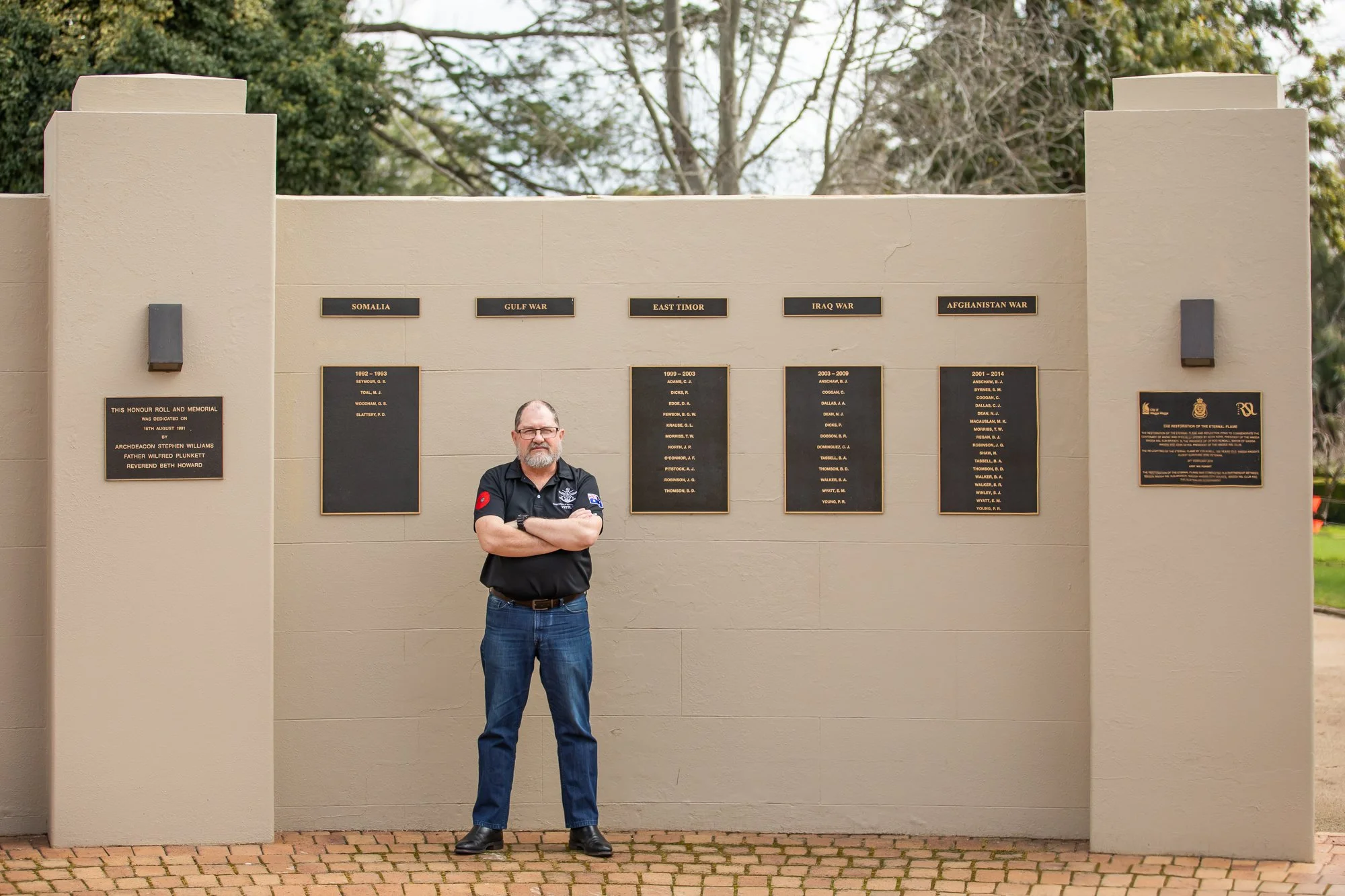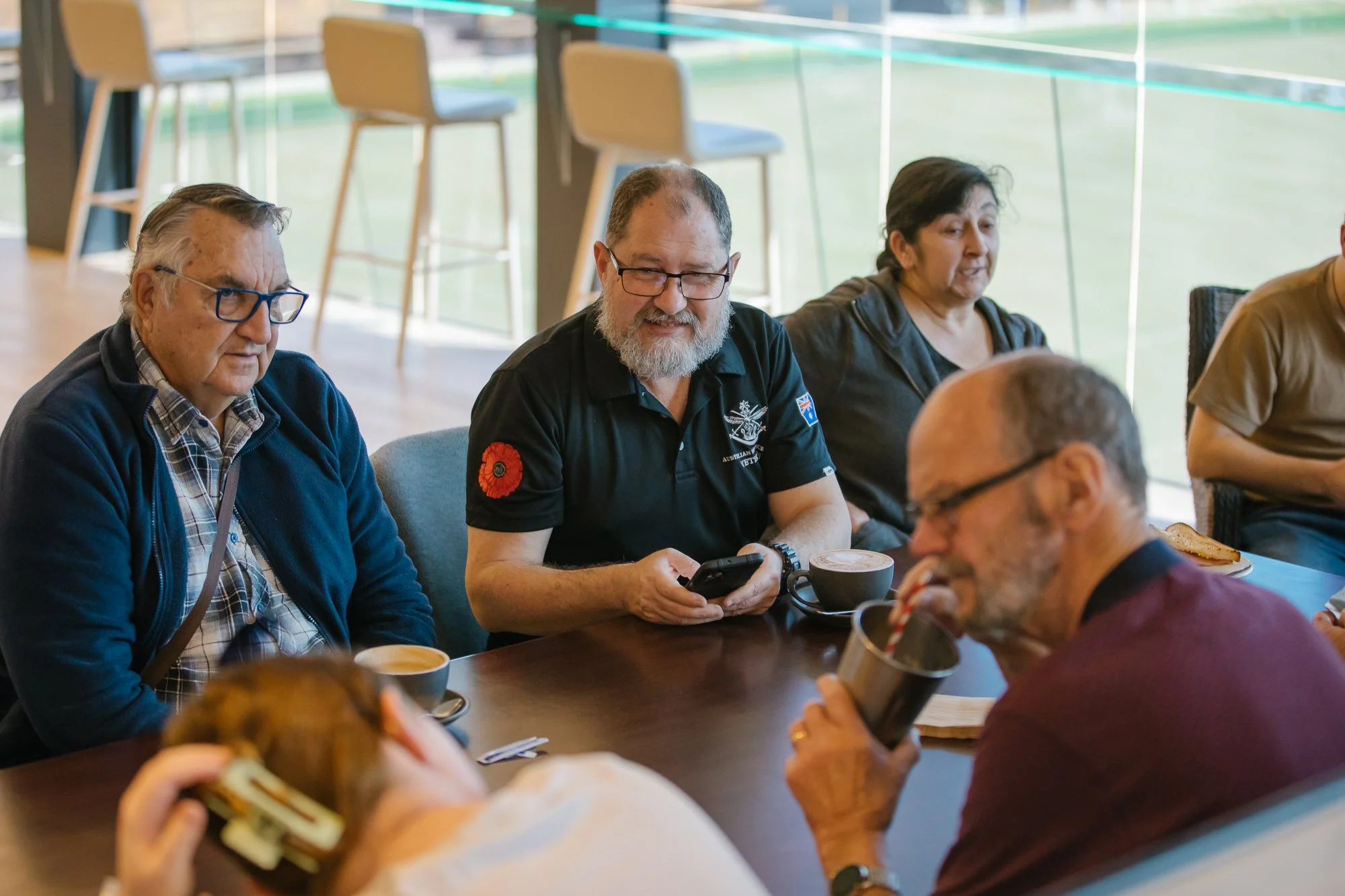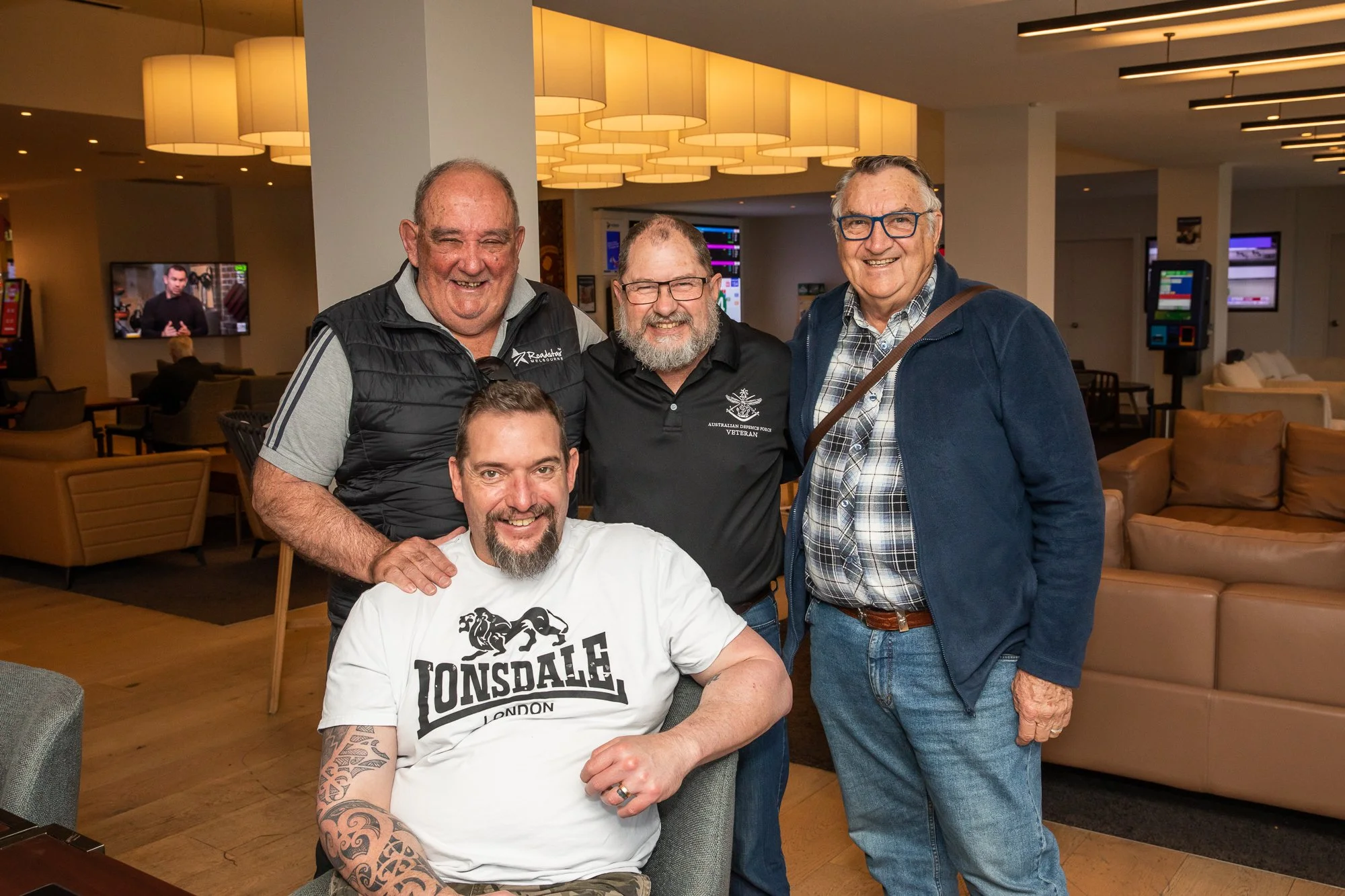A force for good: veterans helping veterans
Richard Salcole spent 28 years in the Royal Australian Air Force, two years in the Australian Army Reserve and periods supporting veterans and he speaks from experience when he says, “Once you’ve served, you can never go back to being a civilian. The things you experienced are things most civilians don’t see.”
Richard was only 17 when he joined the Army Reserve, a natural progression given the strong family background in the military.
“The defence forces have always been a big part of my family. My grandfather and his two brothers were World War II veterans, I had three great, great uncles that served in the First World War and by the time I was three, my dad joined the Army Reserve. I think by the time I was six, I’d already decided I was going to join, and I spent more than half my life in service of the country.”
Like many defence force families, Richard, his wife Rose and their two sons moved around a lot, including stints in Adelaide, Newcastle, Richmond and Wagga Wagga. When the boys got to a certain stage in school, Rose and the kids stopped moving with Richard as he took on various roles around Australia and deployments overseas to various posts, including the UK as part of the Federation Guard, to East Timor and the Middle East.
Throughout his time in defence, Richard dealt with plenty of difficult situations, witnessing accidents and having to inform families that their loved one had died.
“When I was deployed to East Timor, I saw a lot of things that I hadn’t experienced in my own life and I came to understand how a lot of veterans come to get issues just from the simple things like seeing depravation of liberties, internally displaced people everywhere, children drinking water out of drains. We were there to help these people and I took a bit of that to heart, even though I compartmentalised it.”
Richard was eventually posted to Canberra as the Ceremonial Warrant Officer of the Air Force responsible for running all ceremonial activities including service funerals. Although it was one of the highlights of his career, Richard was only in the role for 12 months when his young granddaughter asked him an important question.
“When she said, ‘Poppy, when are you coming home?’ I knew it was time to get out. During the 28 years in the Air Force, I was away from home nearly 10 years.
“I got out of the permanent Air Force, came back here to Wagga and started a role as a Reservist. I picked a role that I cherish but as a Member Support Coordinator, I took on a lot of vicarious trauma. I hadn't learnt at that stage how to compartmentalise other people's trauma and that then caused me issues.”
Richard started to feel like everything was collapsing around him. He noticed himself getting angry with people and felt himself withdrawing. It also started to impact his physical health, with old injuries he had been carrying for years starting to deteriorate.
“The worse my mental health got, the worse my physical health got as well. I had a breakdown in August 2016 and was diagnosed with anxiety with agoraphobia. I couldn’t work. I couldn’t walk outside. I couldn’t even go into town for appointments or shopping without my wife holding my hand. It became so debilitating that I just lost myself and became resolved that this was my future. I basically gave up and major depressive disorder kicked in.”
Seeing his GP, Richard was referred to Open Arms, Australia’s leading provider of mental health assessment and counselling for Australian veterans and their families. When he first called them he got an answering machine, which left him feeling frustrated. Richard’s wife Rose encouraged him to pick up the phone again.
“She said, ‘leave a message’ so I did, thinking it was a waste of time. Within 20 minutes, I had a call back from an online psychologist. They did an assessment and I saw a counsellor within a week. I saw a psychiatrist and then asked to see a psychologist, and with the psychologist I went through some cognitive behavioural therapy and immersion therapy to help overcome the agoraphobia.
Richard noticed that spending time with his pet dog was also helping so he signed up for an equine therapy program run by RSL Life Care, called Spur Ranch.
“That experience was so powerful. It’s a magical thing to become one with a beast five, six times your size. It’s about being able to engage with an animal but also invoking emotions and being able to get to that place where you feel rested and relaxed and ready to talk.”
Accepting that it might not be for everyone, Richard acknowledges there are plenty of other ways for veterans to get help like music therapy, art therapy and peer interaction.
“My brother and I run short courses for veterans like small motor maintenance. It’s not about the machinery at all. It’s about having a common experience, people getting their hands dirty and then opening up and supporting each other.
“Veterans have their own language and their own way of engaging. We share experiences only other veterans understand. It’s about connecting people who have a common lived experience, which then creates a support network that grows and grows.”
Richard’s advice for others experiencing their own mental health issues follows in this vein: Don’t do it alone.
“I don’t know where I’d be without my wife encouraging me to call Open Arms. There are people out there that understand what you’re going through who can give you support on your own journey. So, reach out for help. You never did it alone while you’re in the service, so don’t try to do it on your own outside.
For more information about Open Arms, visit: www.openarms.gov.au. Support is also available at the Riverina Veteran Wellbeing Centre in Wagga Wagga.
The Australian Government resource Head to Health has digital mental health and wellbeing resources, for yourself or for someone you care about – visit headtohealth.gov.au.
Anyone who is experiencing a mental health emergency (themselves or others) should call Mental Health Line 1800 011 511, Lifeline 13 11 14 or call 000.





